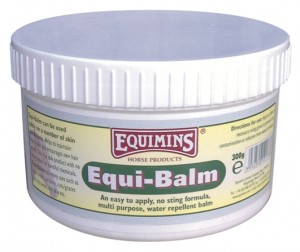Bites banished!
This summer has been great for the sunshine, but if you’re a horse owner, you will have noticed the number of flies…many of whom seem intent on annoying horses! Fly repellents are a great way to keep flies away, but what do you do if your horse gets bitten? Here’s our guide…
A fly bite should be treated as any other wound…so let’s start at the beginning…
Clean
 It’s important to clean the fly bite to start with as you want to get everything ‘nasty’ away from the wound, and it allows you to see the extent of the wound too. Use warm water with some horse safe antiseptic or something like our Tea Tree Mist. Depending on the severity of the bite, you might need to trim the surrounding hair, to see what you’re dealing with!
It’s important to clean the fly bite to start with as you want to get everything ‘nasty’ away from the wound, and it allows you to see the extent of the wound too. Use warm water with some horse safe antiseptic or something like our Tea Tree Mist. Depending on the severity of the bite, you might need to trim the surrounding hair, to see what you’re dealing with!
Treat
When the wound is clean, give it a little time to dry if you’re using a cream or gel (it helps it ‘stick’ better), or you can apply Wound Powder to a damp area as it’s designed to dry it out. If the fly bite is wet, Wound Powder is a good option, and it has the additional advantage (if you apply enough!) of providing a barrier between the flies and the  wound. If the fly bite requires soothing, look at something like Aloe Vera Gel. Our Equi-Balm is non-sting and truly multipurpose and is effective on bites, or Wound Gel is perfect for the task as it uses silver ions to kill 99% of bacteria, herbs to help prevent infection and hasten skin rejuvenation, and it’s easy to apply too.
wound. If the fly bite requires soothing, look at something like Aloe Vera Gel. Our Equi-Balm is non-sting and truly multipurpose and is effective on bites, or Wound Gel is perfect for the task as it uses silver ions to kill 99% of bacteria, herbs to help prevent infection and hasten skin rejuvenation, and it’s easy to apply too.
The key with all wound care is to access it initially, to monitor it and to clean it regularly. If you’re in any doubt, speak to your vet. Some horses can react to fly bites, much like humans, so if you’re concerned it is better to be safe.

 Equimins specialises in producing natural horse supplies, products and supplements for the major areas associated with caring for a horse. All products are proudly made in the UK and excellent specification quality products are of paramount importance. Using this blog we want to share some of the knowledge we have gained through nearly 30 years of experience.
Equimins specialises in producing natural horse supplies, products and supplements for the major areas associated with caring for a horse. All products are proudly made in the UK and excellent specification quality products are of paramount importance. Using this blog we want to share some of the knowledge we have gained through nearly 30 years of experience. 


